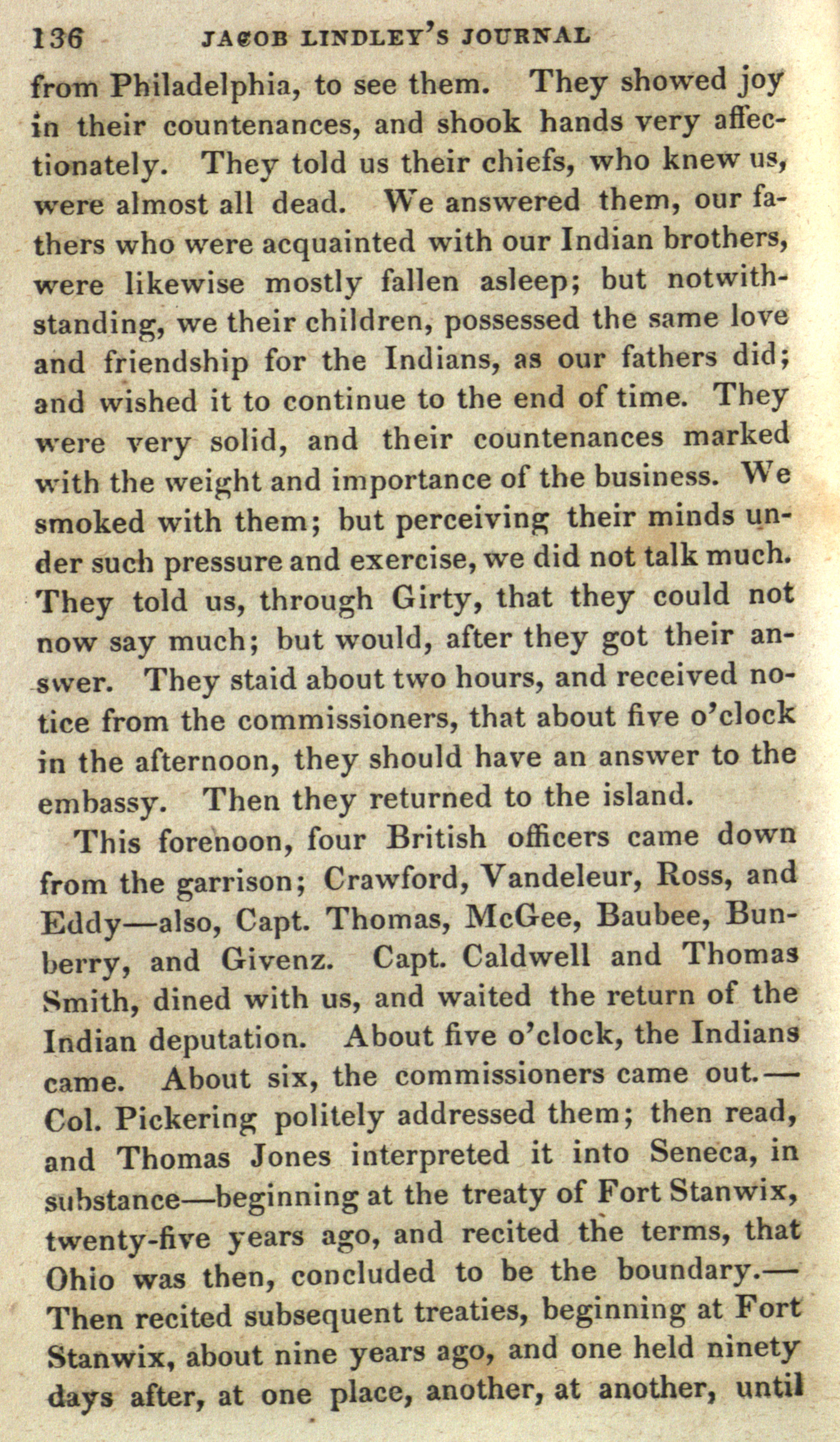from Philadelphia, to see them. They showed joy
in their
countenances, and shook hands very affec-
tionately. They told us their
chiefs, who knew us,
were almost all dead. We answered them, our
fa-
thers who were acquainted with our Indian brothers,
were likewise
mostly fallen asleep; but notwith-
standing, we their children, possessed
the same love
and friendship for the Indians, as our fathers did;
and
wished it to continue to the end of time. They
were very solid, and their
countenances marked
with the weight and importance of the business.
We
smoked with them; but perceiving their minds un-
der such pressure
and exercise, we did not talk much.
They told us, through Girty, that they could not
now say much; but
would, after they got their an-
swer. They staid about two hours, and
received no-
tice from the commissioners, that about five o'clock
in the
afternoon, they should have an answer to the
embassy. Then they returned to
the island.
This forenoon, four British officers came down
from the garrison; Crawford, Vandeleur, Ross,
and
Eddy — also, Capt. Thomas, McGee, Baubee, Bun-
berry, and
Givenz. Capt.
Caldwell and Thomas
Smith,
dined with us, and waited the return of the
Indian deputation. About five
o'clock, the Indians
came. About six, the commissioners came out. —
Col. Pickering politely addressed them; then
read,
and Thomas Jones interpreted it into
Seneca, in
substance — beginning at the treaty of Fort Stanwix,
twenty-five years ago, and recited the terms,
that
Ohio was then, concluded to be the
boundary.—
Then recited subsequent treaties, beginning at Fort
Stanwix, about nine years ago, and one held
ninety
days after, at one place, another, at another, until

